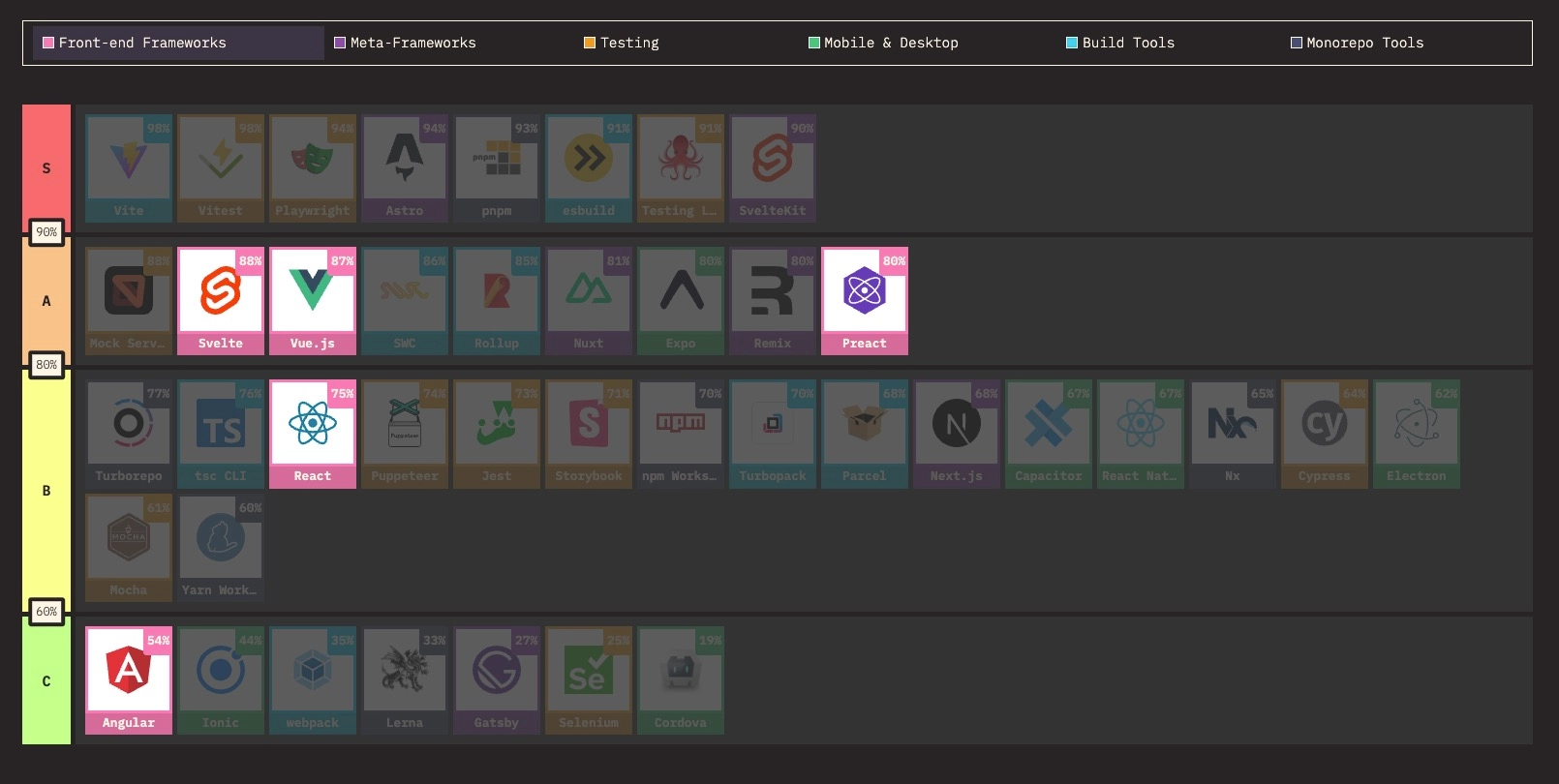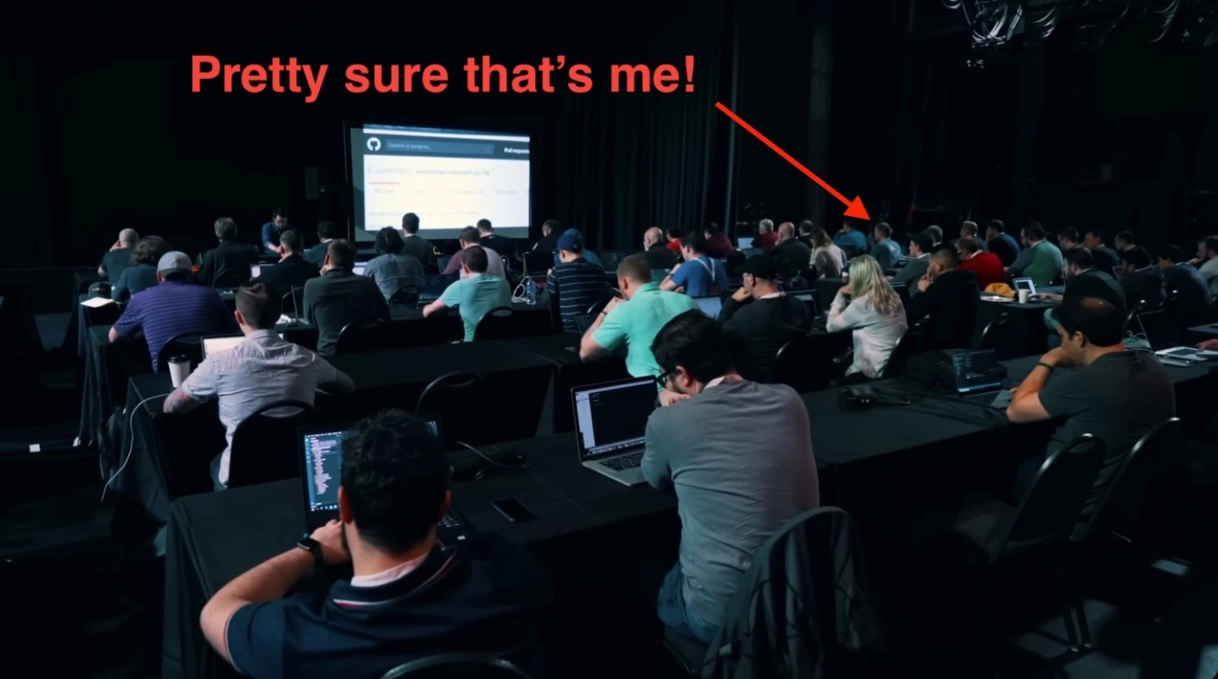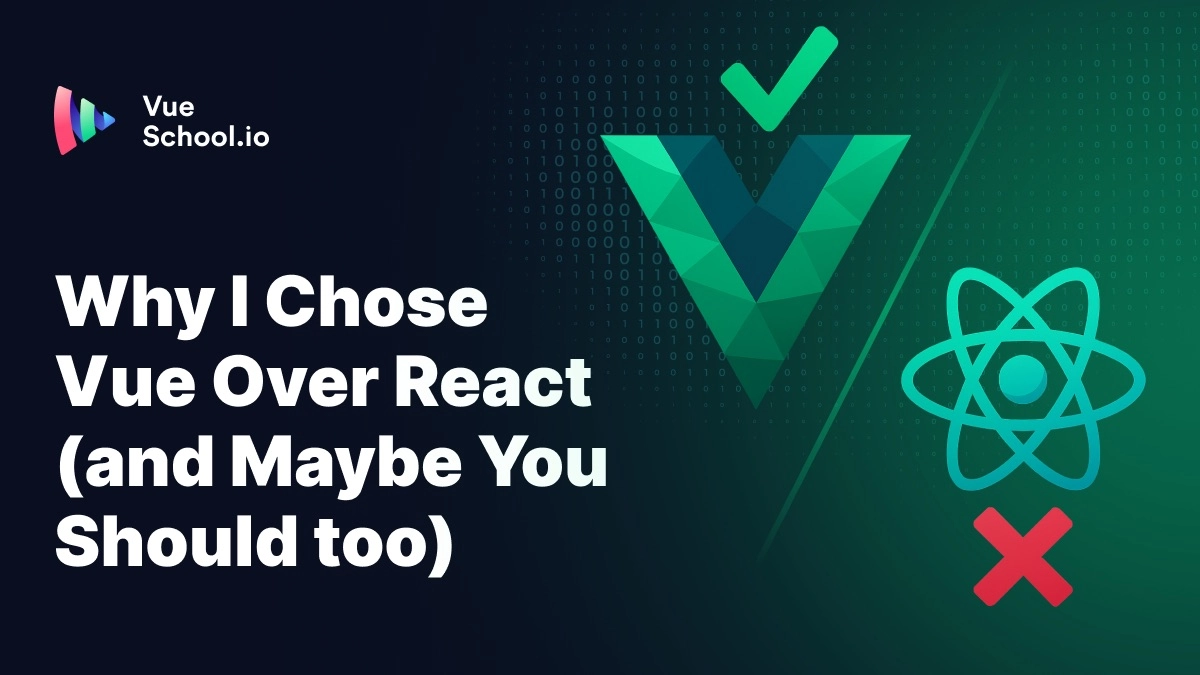Why I Chose Vue Over React (and Maybe You Should Too)

I still remember the moment I was first introduced to reactive programming and component-based architecture for the frontend. I was in an airport heading to Laracon around 2015 or 2016. (A quick google search confirms it was 2016). At that time, my entire frontend toolkit was jQuery. It got the job done, and I didn't know there was any other way.
While waiting for my flight, I met another developer who was also heading to Laracon. He mentioned that his team had recently adopted React and briefly explained the idea of building UIs from state rather than manually manipulating the DOM. It was the first time the “reactive” paradigm had been described to me.
When I acutally got to the conference, by some crazy coincidence, Evan You was there giving a talk introducing Vue. (I can even see the exact slideshow from Evan's talk. The internet is so cool!) He walked through how Vue approached reactivity, components, templating, and so on. It was simple, approachable, and instantly got me excited for this new approach to building UIs.
When I got home, I decided to dive deeper. I tried React first because it seemed like the “industry standard” choice at the time (and my meetup in the airport really spoke highly of it!). But I found the learning curve surprisingly steep. Even basic patterns felt unintuitive, and the mental model didn’t line up with how I naturally thought about building interfaces. Ultimately, it was just hard.
So back to jQuery? Not, yet. It was time to give Vue a try.
Within a few hours, I was building image carousels from scratch and it was easy. The syntax felt natural.
I wasn’t alone in that feeling. Even Taylor Otwell summed up the experience perfectly with this classic tweet:
“Current React learning status: overwhelmed. Learning @vuejs because it looks easy and has pretty website. 👍”
— @taylorotwell
And years later, developers still echo the same sentiment. One of my favorites:
“Vue is better than React. We act like there's a "right tool for the job" argument but it's a lie. Vue is the better choice.”
— @LukeDiebold
But these are far from the only people who feel this way. Plenty more agree:
- "the reason I love vue and nuxt is the simplicity really. everytime someone brings react or next to me it's drama"
- "My stack changed a lot...weird but I prefer Vue over React"
- "Vue...offers a simpler and more efficient approach to reactivity [compared to React], which can greatly improve performance..."
- "Vue has much better opinionated API than React does.... React feels like an old fighter that has its tricks..."
- "Why I prefer Vue over React? because React ISN'T reactive at all..."
Common Reasons Developers Choose Vue Over React
So why do so many developers prefer Vue over React? Here are some of the reasons I have along with the ones I've heard from others over the years.
1. Vue’s mental model is immediately understandable
Vue’s reactivity feels natural: update state, the UI updates. There’s usually no need to manage lower level rerender logic and no seperate state updating functions to worry about. The framework does the intuitive thing.
Here's a simple example of Vue's reactivity in action.
<!-- counter.vue -->
<script setup>
const count = ref(0);
</script>
<template>
<div>
<h1>{{ count }}</h1>
<button @click="count++">Increment</button>
</div>
</template>2. Vue Single-File Components keep everything organized
Templates, logic, and styles living together just makes sense. It keeps files clean and reduces cognitive load. AI agents also love it because it gives comprehensive context in one place. Bonus: no JSX!
<!-- State and Logic goes here -->
<script setup></script>
<!-- HTML goes here -->
<template></template>
<!-- Styles go here -->
<style scoped></style>3. Starting with Vue means a faster ramp-up for new projects and new developers
You can teach the basics of Vue quickly and start shipping features the same day. React often requires learning several concepts before getting real momentum. This was exactly my experience and one of the sentiments I hear most often!
Don't believe me? Do a little google search and I guarantee you'll find plenty posts, articles, tweets and more that agree. It's clear from what people are saying online that Vue tends to "click" faster and stay enjoyable longer.
4. Vue has a comprehensive ecosystem
When building a new project, it's important to have a comprehensive ecosystem of tools and libraries compatible with your chosen framework to handle the most common tasks. Vue has a lot of them and they tend to work well together.
Offical solutions like Pinia and Vue Router mean no analysis paralysis when choosing a global statement solution and a routing library.(Yes we're looking at you, React Router and Tanstack Router.)
The popular Vite build tool is the single official build tool for Vue. It's fast, easy to use, works well with Vue, and is vetted across the entire web development community (it has support for React, Vue, Svelte, and more).
Looking for common reactive utilities like the popular react-use library or useHooks library? Vue has a single source of truth, VueUse. It includes 200+ composables to choose from for handling common tasks like debouncing, media playback, localstorage, and more.
Need server side rendering? Nuxt is the clear choice. It's so good that Vercel (the creators of Next.js), recently bought the company behind Nuxt (Nuxt Labs).
UI libraries are also in plentiful supply, including some of my favorites:
(Yes, 2 of these are 100% compatible with Tailwind CSS.)
5. Those who use Vue are more likely to stick with it

In the State of JS 2024 survey, 75% of React developers said they'd use React again compared to the 87% of Vue developers. Haha, I can personally relate to this one!
Looking for the 2025 data? At the time of this writing, it's results aren't quite in but you can find them here when released.
6. Vue is used by many well-known and established companies
Yes, React definitely has the "volume advantage" but plenty of large companies are also using Vue. Maybe you've heard of:
- Jackbox Games - Their party gaming platform is built with Vue.
- n8n - the workflow automation platform that is all the rage these days is also built with Vue and Nuxt.
- Laravel Forge - stuck with Vue for it's latest rewrite.
- Upwork - the freelancing platform where you can find your next Vue development gig, is itself build with Vue and Nuxt.
- Gitlab - the Github alternative for code repo management-- yup, built with Vue.
- Behance - Adobe's design platform is built with Vue.
- and more, and here too, and don't foget here.
7. Vue "feels" different
From it's more grassroots beginnings, to it's lack of backing by corporate giants, to it's commonly noted "friendly community" - Vue has always felt like a framework that is built by developers, for developers-- no... even better... built by people for people who are passionate about how the web impacts the real world.
Some benefits can't be measured in numbers or quantified in surveys. Sometimes you just have to try it out to understand for yourself.
While nothing beats trying it for yourself, Vue.js: The Documentary gives you a glimpse into the community and the passion behind the framework.
And since we're on the topic and I'm still feeling nostalgic, I'd like to go on record saying that I'm pretty sure the back of my head made the cut in that documentary at 32:20. I attended this workshop given by Evan (I think in Austin, TX right before covid hit in 2020. People were already bumping elbows instead of shaking hands but the world hadn't shut down yet.)

Vue vs React - Wrapping Up
I didn’t choose Vue because React was wrong-- I chose Vue because it felt right and it made sense.
Vue made frontend development more approachable... no... more enjoyable. And it gave me the confidence to move beyond sprinkling in JavaScript here and there on informational sites to building full-fledged web apps.
That airport conversation and Evan You’s talk were small moments, but they led me to a framework that ended up shaping years of my work. Honestly, adopting Vue was a turning point for me, and I’m genuinely thankful for all the doors it’s opened.
Start learning Vue.js for free

Comments
Latest Vue School Articles
Just Released: Nuxt Hub Multi-Vendor and First-Class DB

Vue.js – 2025 In Review and a Peek into 2026

Our goal is to be the number one source of Vue.js knowledge for all skill levels. We offer the knowledge of our industry leaders through awesome video courses for a ridiculously low price.
More than 200.000 users have already joined us. You are welcome too!
© All rights reserved. Made with ❤️ by BitterBrains, Inc.



